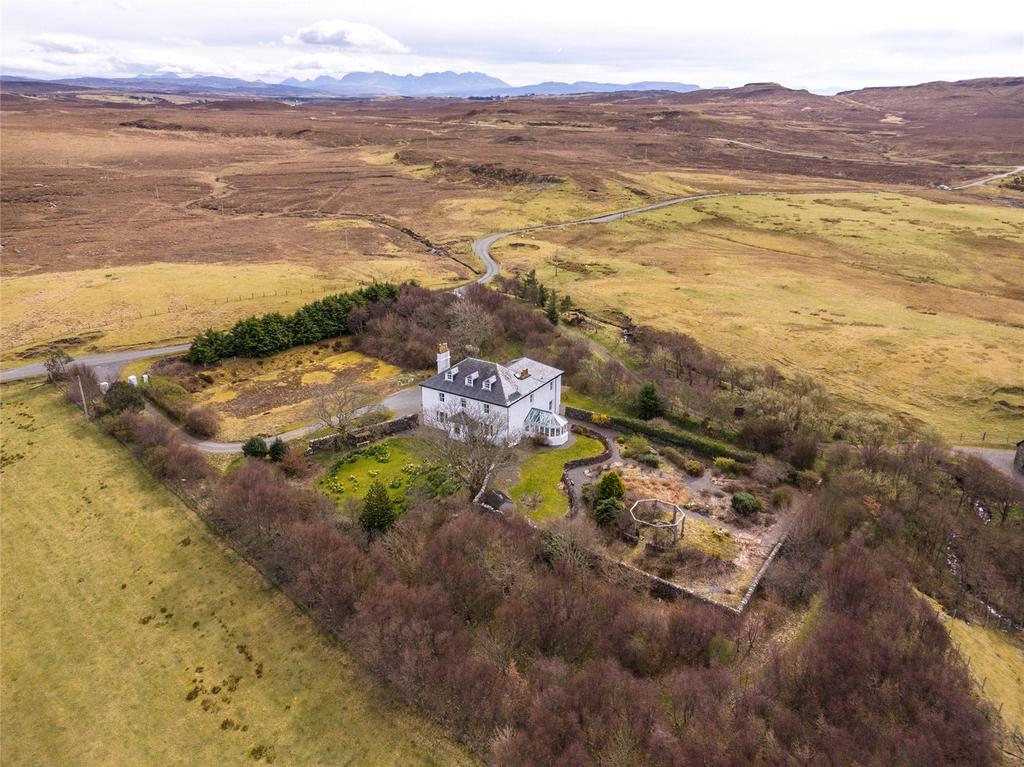
Exquisite houses, the beauty of Nature, and how to get the most from your life, straight to your inbox.
You are now subscribed
Your newsletter sign-up was successful
Pine martens have returned to the south-west of England for the first time in 150 years. Not many, to be sure — some 15 animals have been re-introduced to the woods of Dartmoor — but it's a start.
‘We haven’t had pine martens here for 150 years,’ said Ed Parr Ferris, conservation manager at Devon Wildlife Trust, the organisation which has overseen the release of 15 of these tree-climbing mustelids. ‘To see them moving out into this landscape to explore it and find their way is really exciting.’
Why bring them back? It's all about helping restore the local woodlands. The species, was driven to extinction in this part of the world at the beginning of the 20th century, and within the UK only Scotland's native species survived. Conservationists now believe that they could help reduce numbers of grey squirrels, the invasive species which damages trees and has indirectly wiped out the red squirrel population of England. Pine Martens might easily target reds as well, of course, but there is some evidence from Ireland that red squirrels are better equipped than greys to evade these predators.
There are at present a handful of pine martens in Cumbria and Northumberland, some in Wales, and a few in Gloucestershire and the New Forest following similar reintroduction programmes. All the individuals in the Dartmoor release – eight female and seven males — have been fitted with GPS or radio tags to monitor their movements, and the animal's impacts on rare birds and bats will be carefully monitored, according to the reintroduction team.
The dog who's trained to train dogs
Difference between husky and border collie byu/Umer_- inEyebleach
Quiz of the Day
1) What type of creature is a blackcap?
2) Which British couturier designed Elizabeth II’s wedding gown?
3) What is ‘albumen’ more commonly known as?
Exquisite houses, the beauty of Nature, and how to get the most from your life, straight to your inbox.
4) I Am the Very Model of a Modern Major-General is from which work by Gilbert and Sullivan?
5) In which century did the Black Death occur in Europe?
Perfectly framed

Something for the weekend
The Literature & Landscape Festival is on from Friday to Sunday this week, in Wells-next-the-Sea, Norfolk. It's run by Country Life contributor Charles Rangeley-Wilson and his wife Vicky, and they've got an enviable roster of writers taking part — including the brilliant Robert Macfarlane. See www.literatureandlandscape.org for more details, and to whet your appetite you can listen to our podcast with Charles and Vicky right here:
Still on the market

This beautiful manse close to Dunvegan, on the northwest of Skye, has been on sale for a few months — and the vendors have trimmed the asking price to under £700,000. That makes it the roughly the same price as this house in Luton. You pays your money, you takes your choice. (Luton is definitely an easier commute, of course.) See more details and pictures.
And finally...
Food waste is the epitome of a modern problem: given the number of families relying on food banks to make ends meet, it's shocking that around £14 billion in food is wasted in the UK each year.
One pub in Cornwall has decided to take a stand. The Star Inn, in the village of Vogue (yes, really) has decided to start charging customers who opt for the pub's self-service carvery, pile plates high, and fail to eat what they've taken. One customer told the BBC that she was 'shocked' to be charged an extra £4.80 for 'not eating all our meal'.
The Star Inn's landlord, Mark Graham, wrote in response to an online review that the policy is rarely enforced. 'If you leave a few spuds, etc, there is obviously no problem. Where the problem arises is just pure waste,' he wrote.
Mr Graham explained further to the BBC, saying that it's become a growing problem, particularly with customers who go back for seconds which end up largely untouched: 'We brought the policy in play, just to slow it down, to stop the waste, to stop the excessiveness of it,' he said. 'When we looked at this plate, they piled it high so you could put a ladder and a flag on top of it... It's an all-you-can-eat buffet, not all-you-can-carry buffet.'
That's it — we're back tomorrow.
Quiz of the Day: The answers
1) Bird
2) Sir Norman Hartnell
3) Egg white
4) ‘The Pirates of Penzance’
5) 14th century
Toby Keel is Country Life's Digital Director, and has been running the website and social media channels since 2016. A former sports journalist, he writes about property, cars, lifestyle, travel, nature.

